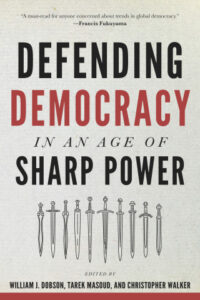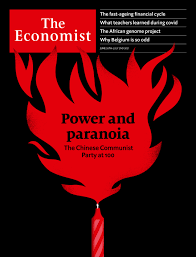“709 Crackdown 2.0” Global call against China’s renewed crackdown on human rights lawyers https://t.co/nCqIa7GCKs
— Democracy Digest (@demdigest) July 11, 2023

Civil society and pro-democracy groups are marking China Human Rights Lawyers Day, in remembrance of the Chinese government’s roundup of over 300 human rights lawyers and legal assistants in the days following July 9, 2015, in what is known as the ‘709 crackdown’. Against this new wave of repression, they are calling on the international community to urge the Chinese government to:
- Put an end to its crackdown on human rights lawyers and defenders;
- Immediately and unconditionally release all those arbitrarily detained;
- Amend laws and regulations, including national security legislation, its Criminal Law and Criminal Procedure Law, to bring them into full compliance with international human rights standards; and meaningfully cooperate with the United Nations human rights bodies to that end.
Is Beijing nurturing an industrial version of its academic Confucius Institutes in support of its United Front strategies?
China’s network of more than 30 Luban Workshops in 25 countries offer a host of skills training programs, from manufacturing systems using artificial intelligence to traditional Chinese medicine, as part of its menu of hard- and soft-power options. Tens of thousands of young people have graduated from them, The Washington Post reports.
“China’s overseas economic aim is to tie the emerging economies of the world more closely to China’s industrial system,” said Dirk van der Kley, a research fellow at the Australian National University and author of an upcoming report on the workshops. “Xi Jinping is trying to create a new world order in which the U.S. role is reduced. … In the case of Luban, which can provide genuine benefits for recipient states, the underlying goal of reshaping the world order does not go away.”
Beijing’s drive to export secrecy is an underappreciated dimension of its sharp power projection. China’s emerging global secrecy regime represents a systemic threat to open and accountable governance—and will require a purposeful and sustained response from democracies to expose and neutralize it, says Christopher Walker, Vice President for Studies and Analysis at the National Endowment for Democracy (NED).

National Endowment for Democracy (NED)
Open societies should respond to these challenges by strongly privileging transparency and reaffirming principles and practices of openness. Secrecy is a competitive advantage for China, whose leadership has fine-tuned governance by concealment at home, and which is unaffected abroad by legislation forbidding foreign bribery. Democracies, however, have their own competitive advantage: openness, he writes for Foreign Affairs:
- Democratic governments and nongovernmental organizations must also do a better job of explaining the problems that result from Beijing’s secretive and often corrupting practices. A clearer understanding of the downsides of engagement with China will help countries avoid making choices that compromise democratic integrity, thereby reducing Beijing’s competitive advantage.
- Democracies must be far more proactive in their public defense of openness. Chinese authorities are making an argument, often dressed up in grandiose language, about the ostensible benefits of their development approach….As part of their communication strategy, democracies should highlight Beijing’s use of secrecy to dominate and exploit other countries. At the same time, they should challenge Chinese companies to make all of their contracts transparent.
 Finally, open societies will need to develop the structures and instruments to deal with the unique challenges presented by the Chinese party state. When negotiating bilaterally with other countries, China is usually able to get its way because it is invariably the stronger party. That is why Beijing works so hard to prioritize bilateral relationships over multilateral ones.
Finally, open societies will need to develop the structures and instruments to deal with the unique challenges presented by the Chinese party state. When negotiating bilaterally with other countries, China is usually able to get its way because it is invariably the stronger party. That is why Beijing works so hard to prioritize bilateral relationships over multilateral ones.
To address this challenge, open societies will need to form new and adaptable coalitions to negotiate with China from a position of greater strength, adds Walker, co-editor with William J. Dobson and Tarek Masoud of the forthcoming book, Defending Democracy in an Age of Sharp Power.







